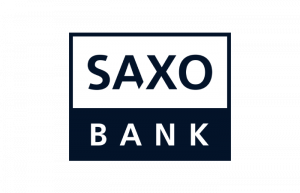WTI Crude Price: Analyzing the Pulse of Global Oil Markets
The WTI crude price is a critical benchmark for global oil markets, reflecting economic health, geopolitical tensions, and supply-demand dynamics. Its fluctuations impact economies, industries, and consumers worldwide.

West Texas Intermediate (WTI) crude oil is one of the world’s most closely monitored commodities, serving as a major benchmark for oil prices globally. The WTI crude price is not just a number; it’s a vital indicator of the global economic climate, influenced by a complex web of factors including geopolitical events, supply and demand dynamics, technological advancements, and market sentiment. Understanding the movements in the WTI crude price is essential for investors, policymakers, and industry stakeholders as it has far-reaching implications for the global economy.
The price of WTI crude is particularly sensitive to geopolitical tensions in oil-rich regions, as any disruption in supply can lead to price volatility. Conflicts, sanctions, and diplomatic relations between oil-producing nations can significantly impact the flow of crude, thus affecting its price on the global market. Additionally, decisions made by the Organization of Petroleum Exporting Countries (OPEC) and its allies regarding oil production levels are closely watched by market participants, as these decisions can alter supply dynamics and influence prices.
Economic indicators also play a crucial role in the pricing of WTI crude. As oil is a fundamental component of many industries, its demand is closely tied to the health of the global economy. Periods of economic growth typically see increased demand for oil, driving prices up, while economic downturns can lead to decreased demand and falling prices. The ongoing transition towards renewable energy sources and the global commitment to reducing carbon emissions add another layer of complexity to the future demand and pricing of crude oil.
Technological advancements in oil extraction and production have a significant impact onWTI crude prices as well. Innovations such as hydraulic fracturing (fracking) and improvements in drilling technology have increased the efficiency and reduced the cost of oil production, especially in the United States. This has led to a surge in U.S. oil production, altering the global supply landscape and affecting WTI crude prices.
Market sentiment, driven by traders’ perceptions and speculative activities, can also cause short-term fluctuations in WTI crude prices. News headlines, economic reports, and forecasts can sway market sentiment, leading to price movements that may not always align with fundamental supply and demand factors.
The impact of WTI crude price movements extends beyond the oil industry, influencing inflation rates, exchange rates, and even monetary policy decisions. Higher oil prices can lead to increased transportation and manufacturing costs, contributing to inflationary pressures. Conversely, lower oil prices can provide a boost to consumer spending and economic growth but may also signal weakening global demand.
In conclusion, the WTI crude price is a barometer of the global economic environment, reflecting a myriad of factors that influence the world’s economic health. Its fluctuations have wide-ranging implications, affecting everything from national economies to individual consumer behavior. As the world navigates through geopolitical tensions, economic shifts, and the transition towards sustainable energy, the WTI crude price will continue to be a focal point of global attention, offering insights into the challenges and opportunities that lie ahead in the global energy landscape.









